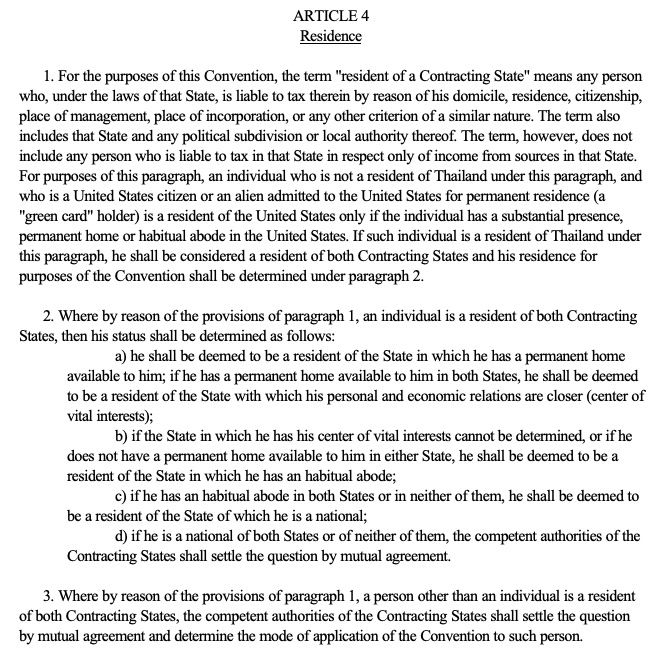I will quote IRS again: " Your permanent residence address is the address in the country where you claim to be a resident for purposes of that country’s income tax. If you are completing Form W-8BEN to claim a reduced rate of withholding under an income tax treaty, you must determine your residency in the manner required by the treaty. Do not show the address of a financial institution, a post office box, or an address used solely for mailing purposes.
If you do not have a tax residence in any country, your permanent residence is where you normally reside. "
How then do you explain this IRS statement?
To me, but I may be wrong and as it's written post tax treaties, IRS statement prevails over DTA.
Indeed, it's one more residence proof among others but it's not a must as you mentioned.




